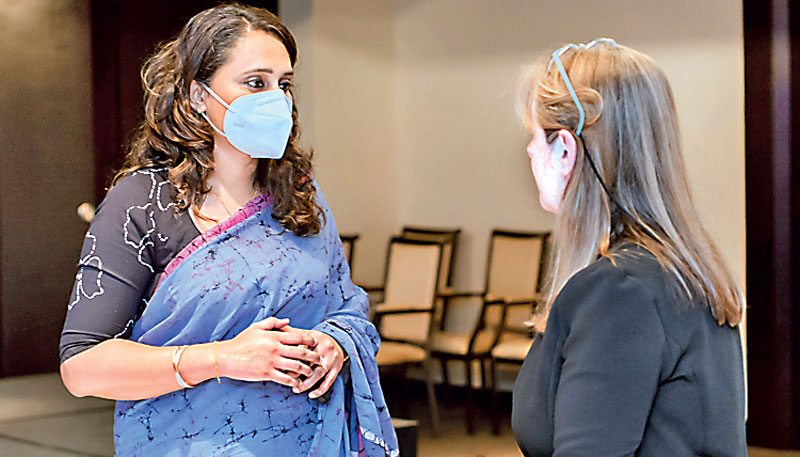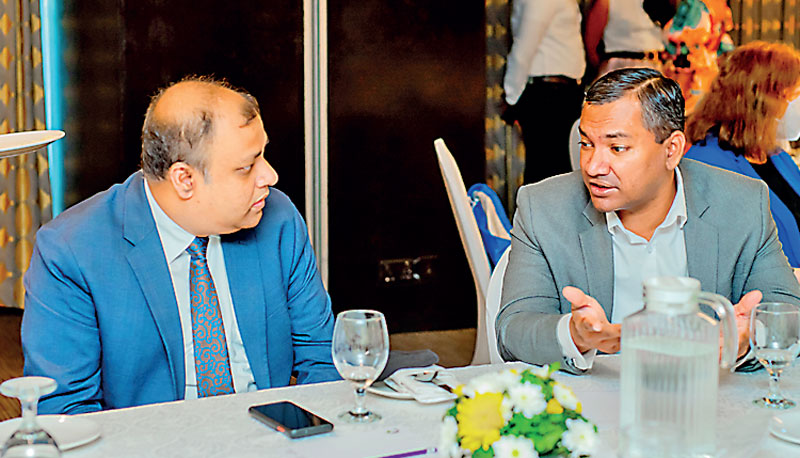Monday Feb 16, 2026
Monday Feb 16, 2026
Thursday, 3 March 2022 01:40 - - {{hitsCtrl.values.hits}}

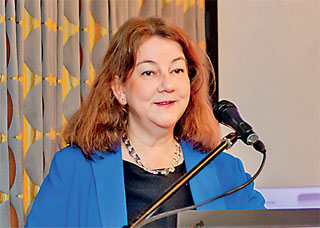 |
| CIM UK Chairperson Dr. June Dennis |
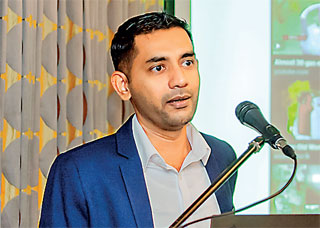 |
| Microsoft Azure Data Lead Thulasee Shan |
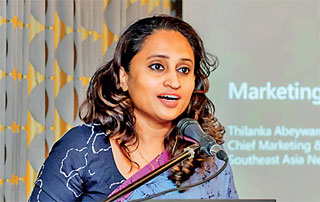 |
| Microsoft Chief Marketing and Business Operations Lead Thilanka Abeywardena
|
Technology giant, Microsoft and the world’s leading professional marketing body, The Chartered Institute of Marketing (CIM) in Sri Lanka recently joined forces at the CEO Breakfast Forum to discuss the trends and technologies of the future marketing era.
At the forum, both organisations found that ‘MarTech’ (marketing technology) will define the success of companies in the future through better user experiences and higher returns on investments.
Experienced marketers and CEOs shared their knowledge and expertise on the optimisation of data to deliver enhanced, information driven, proactive marketing efforts that would shape the new age of marketing in a technology driven environment.
The forum focused on ‘Managing Customer Data in the MarTech Era’, where keynote speakers including, Microsoft Azure Data Lead Thulasee Shan and Chief Marketing and Business Operations Lead Thilanka Abeywardena shared how data can be used to predict customer behaviour and attend to their needs ahead of customer search for products and services. They say that better targeted and low risk campaigns that can bring higher returns are possible by using existing customer behaviour and
preference data.
“There is no need to be a great programmer to make the best use of data available. Providing differentiated services to your customers is simplified by the use of smart technology and apps to filter data, which can be used to make intelligent decisions,” said Shan, stressing the importance of managing data. He says that 75% of online businesses are forecasted to outlast the pandemic over physical business.
Marketing is changing. No longer is it brand driven. It is now customer driven and therefore customers must sit at the heart of every brand journey. The future customer expects you to have exactly what they want, which can be achieved by managing customer data in the most efficient manner possible.
Despite having data in their possession, companies struggle to manage, sort it and identify what to do with it. Data support software that is already available can ease the complexity of segmenting, sorting, identifying data in a manner that makes campaigns easier and measurable.
“In global demand centres, machine driven algorithms pick up hot leads. Machine learning will indicate which leads to look at, which allows marketers to better focus their time on value added work,” said Abeywardena explaining the importance of using tech tools to manage data.
Addressing Sri Lanka’s technology challenges and way forward, ICTA Chief Oshada Senanayake said: “Driving Sri Lanka towards digital fluency and to a digital economy requires proper mechanisms are in place and there is adequacy of law to protect data. It is important that we give consumers the confidence to embrace a digital journey by ensuring cooperation among different sectors and agencies, as more and more public companies go digital.”
The speakers expressed the importance of increasing awareness amongst businesses of the value of data, which is essential for an efficient digital transformation. They agreed customer data needs to be handled in a sensitive manner while being utilised effectively and must learn from the pitfalls of others to drive innovation capable of optimising data.
The panel discussion which followed was moderated by Daily Financial Times Founding Editor Nisthar Cassim. The panel consisted of industry figures including Microsoft Country Manager for Sri Lanka and Maldives Harsha Randeny, Thulasee Shan, Thilanka Abeywardena and Chairman of Information and Communication Technology Agency of Sri Lanka Oshada Senanayake. CIM UK Chairperson Dr. June Dennis was also present at the forum.
The CIM community in Sri Lanka is the largest region outside of the UK and one of CIM’s most important regions. CIM recently launched a new revised suite of qualifications designed to empower Sri Lankan marketers, equipping them with the skills to operate at the highest level. The Institute has incorporated digital marketing to their course module since 2010 and offers a specialised digital marketing diploma to allow practicing and budding marketers to brush up digital skills.

